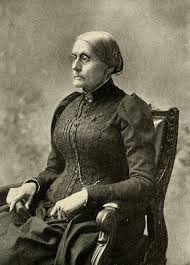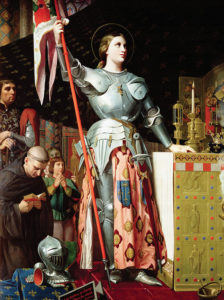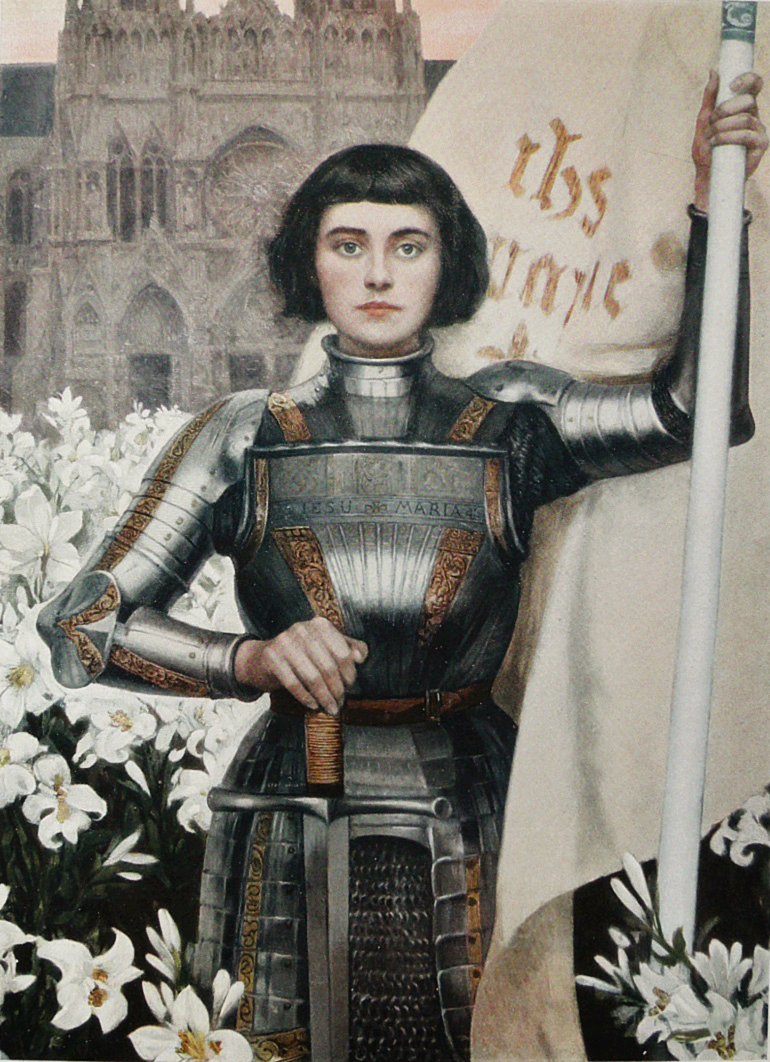by Hisham Fazail
It is well known that in times of old it was the man that stormed the field in defense of his nation, his king, and his god. Amongst songs of clashing steel and spilling blood, the women waited wistfully for the return of their husbands, father, and brothers. But, even in the heat of war and the ballad of death and disease, there have been various women that have defied the odds and broken free from the shackles of society. Women who donned steel gowns and charged with horse and sword or with pen and paper into the affairs of men.

“The preamble of the Federal Constitution says: ‘We the people of the united states’. It was we the people; not we the male citizens.” – Susan B. Anthony
In a world seemingly made by men, run by men, and ruled by men, it was not the place of a woman to decide the fate of her country. One woman sought to change that and lead her nation into a new age of liberty and democracy. That woman was Susan.B Anthony. Susan Anthony (born 1820) was a prominent US civil rights leader who, with the help and aid of various other strong women, played a vital role in the women’s rights movement.
Anthony was a strong woman, she was hellbent on bringing about proper and equal rights for women, especially when it came to voting. Anthony had an extremely strong political personality which went on to define her as a leader and revolutionary. Anthony’s main stage was the 9th women’s rights convention where she posed excellent questions to the men ruling her nation. “Where, under our declaration of independence, does the Saxon man get his power to deprive all women and Negroes of their inalienable rights?!” This question alone cemented her not only as a fighter for women but as an early example of a political figure that stood for anti-racism.
Anthony continued her public speaking and finally cast her vote in 1872, after which she was tried and found not guilty. And although Anthony never saw we sisters vote, she was honored by being on the United States Coin in 1979. Andrews was not only the face of feminism in a time of misogyny, but an Icon for every woman that followed in her name.

“Duke of Bedford, who call yourself regent of France for the King of England, the Maid asks you not to make her destroy you” – Joan Of Arc
In the year 1412, Joan of Arc was born in Domremy, France. It was a little town, Joan grew up in a peasant family. She was often revered for her skill and her hard work, she seemed fairly average except for her utmost piety. During the year of 1425, the young girl began to hear voices and echos which she claimed were the voices of St.Margaret and St.Micheal. She claimed that the voices asked her to take arms and aid the king in his war against the English. She was also instructed to liberate the city of Reins and finally have Charles anointed as king of France.’
When Joan arrived at Vaucoulers to join the fight, the men denied her a place in their ranks and sent her off as a mere woman. However, in late February 1429, she was granted an audience with the king who allowed her to aid the French troops. She was sent to Orleans and quickly jumped into the field, rallying the French forces into a frenzy and expelling the English invaders. After then beating the English forces at the battle of Patay, Joan finally completed her quest of crowing the king.
Perhaps one of Joans most famous works was the letter she writes to King Henry of England. The letter was a stark reminder of a man’s fear in god and of how the French will drive the Englishmen out whether they like it or not.
“Of the love or hatred God has for the English, I know nothing, but I do know that they will be thrown out of France, except those who die there.” – Joan of Arc
Joan was also given the status of a saint by the papacy and has ever since been honored as woman of great morality and a model of piety.

“Though I be a woman yet I have as good a courage answerable to my place as ever my father had.” – Elizebeth the First
Elizabeth the first brought upon her nation an era of golden prosperity. An era England had not seen for centuries prior. Although the queen had various moments during her reign that could be mentioned, it was her speech “I have the heart of a king” that cemented her place in the hall of historic glory.
“I know I have the body of a weak, feeble woman; but I have the heart and stomach of a king, and of a king of England too, and think foul scorn that Parma or Spain, or any prince of Europe,
should dare to invade the borders of my realm; to which rather than any dishonour shall grow by me, I myself will take up arms, I myself will be your general, judge, and rewarder of every one of your virtues in the field.”
The Speech to the Troops at Tilbury was delivered on 19 August 1588 by Queen Elizabeth I of England to the forces gathered at Tilbury in Essex in preparing for fighting back the foreseen
invasion by the Spanish Armada. Elizabeth’s speech includes her celebrated line “I know I have the body of a weak, feeble woman; but I have the heart and stomach of a king, and of a king of England too, and think foul scorn that Parma or Spain, or any prince of Europe, should dare to invade the borders of my realm”.
Elizebeth reminded the men, through this line, her descent through the line of the warrior king Henry. And saw fit to rally the men’s spirits. with the Spanish armada landing on the coasts of her nation, the queen took arms at Tilbury. Her men had rallied behind her, in defense of their nation and their queen. But, after the Spanish flag set sail for England, the men began to lose moral. Noticing this, the queen rode for Tilbury and offered what she could in terms of words. She called the men to battle and spoke of her willingness to fight for her men. Elizabeth did not just win the hearts of the Tilsbury men, but won against the Spanish Armada, Driving them back to Spain.
